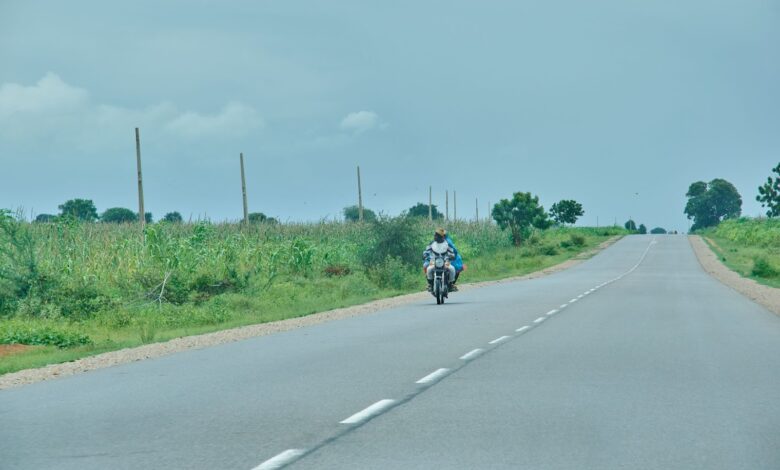Terrorists Attack Police Officers In North West Nigeria, Steal Rifles
Terrorists opened fire at five police officers manning a checkpoint near a local bridge in the Bukuyum area of Zamfara in North West Nigeria yesterday. They stole the abandoned police rifles, boots, and telephones.

Terrorists operating in North West Nigeria attacked a police checkpoint in the Bukuyum area of Zamfara, killing one officer and injuring others on Sunday, June 23.
The terrorists suddenly opened fire at the five police officers manning the checkpoint near a local bridge around 2:00 p.m. The broad daylight gun firing at the officers was done by three armed men, according to eyewitnesses.
Usama Fawa, a local businessman who witnessed the attack, told HumAngle that the police officers were extorting passing vehicles when the terrorists opened fire at them.
“I was riding my bike from my village to Nasarawa market when the police officers stopped almost 11 of us with motorcycles, asking us to pay them ₦50 or ₦100,” Usama recalled. “Unfortunately, the terrorists were there in the delayed queue, holding guns hidden in their gowns. Then, they fired several gunshots at the police; they killed one of them, injured two while two others ran away leaving their guns.”
The terrorists stole the abandoned police rifles, boots, and telephones.
The armed group neither killed nor kidnapped any of the commuters the police stopped for extortion, as many of them ran into nearby bushes for cover when the terrorists fired at the officers.
The attack happened 10 kilometres from the Nasarawa-Burkullu area, where a military camp and a police outpost are based.
HumAngle contacted Yazid Abubakar, the Police Public Relations Officer (PPRO) in Zamfara, but could not reach him by phone. He has also not responded to our text message asking for his comment on the incident.
Terrorists have attacked security operatives in the state on many occasions. Earlier this year, for instance, they killed some security officers in the Anka area of the state in retaliation for heavy military operations against them.
However, eyewitnesses we interviewed suggested that the police officers could have been able to repel the terrorist attack if they had not focused on collecting bribes from motorists plying the checkpoint they were manning.
Nigerian security operatives have been criticised many times for extorting motorists and commuters in volatile areas threatened by insecurity, such as armed violence and insurgency. HumAngle had documented a similar situation in Borno, the birthplace of the Boko Haram insurgency, where highway extortion of motorists thrives.
The report got the attention of the Nigerian army, after which it moved against the extortion of motorists by its officers. Before then, in 2020, the Borno State governor, Babagana Zulum, accused security personnel of the Nigerian military and police of collecting bribes of up to ₦1000 from travellers and motorists.
“You must know that the government and people of Borno state are behind you and your men, but you must call your soldiers to order; you must check their excesses,” Zulum charged authorities of security operatives.
“I saw them with my eyes; I spoke with people that were asked to give money,” he added.
Support Our Journalism
There are millions of ordinary people affected by conflict in Africa whose stories are missing in the mainstream media. HumAngle is determined to tell those challenging and under-reported stories, hoping that the people impacted by these conflicts will find the safety and security they deserve.
To ensure that we continue to provide public service coverage, we have a small favour to ask you. We want you to be part of our journalistic endeavour by contributing a token to us.
Your donation will further promote a robust, free, and independent media.
Donate HereStay Closer To The Stories That Matter




